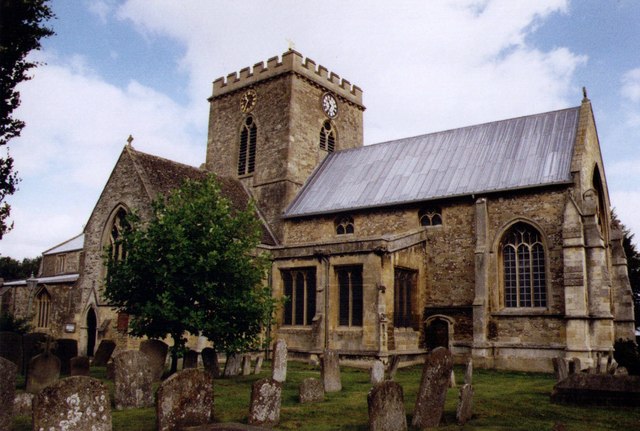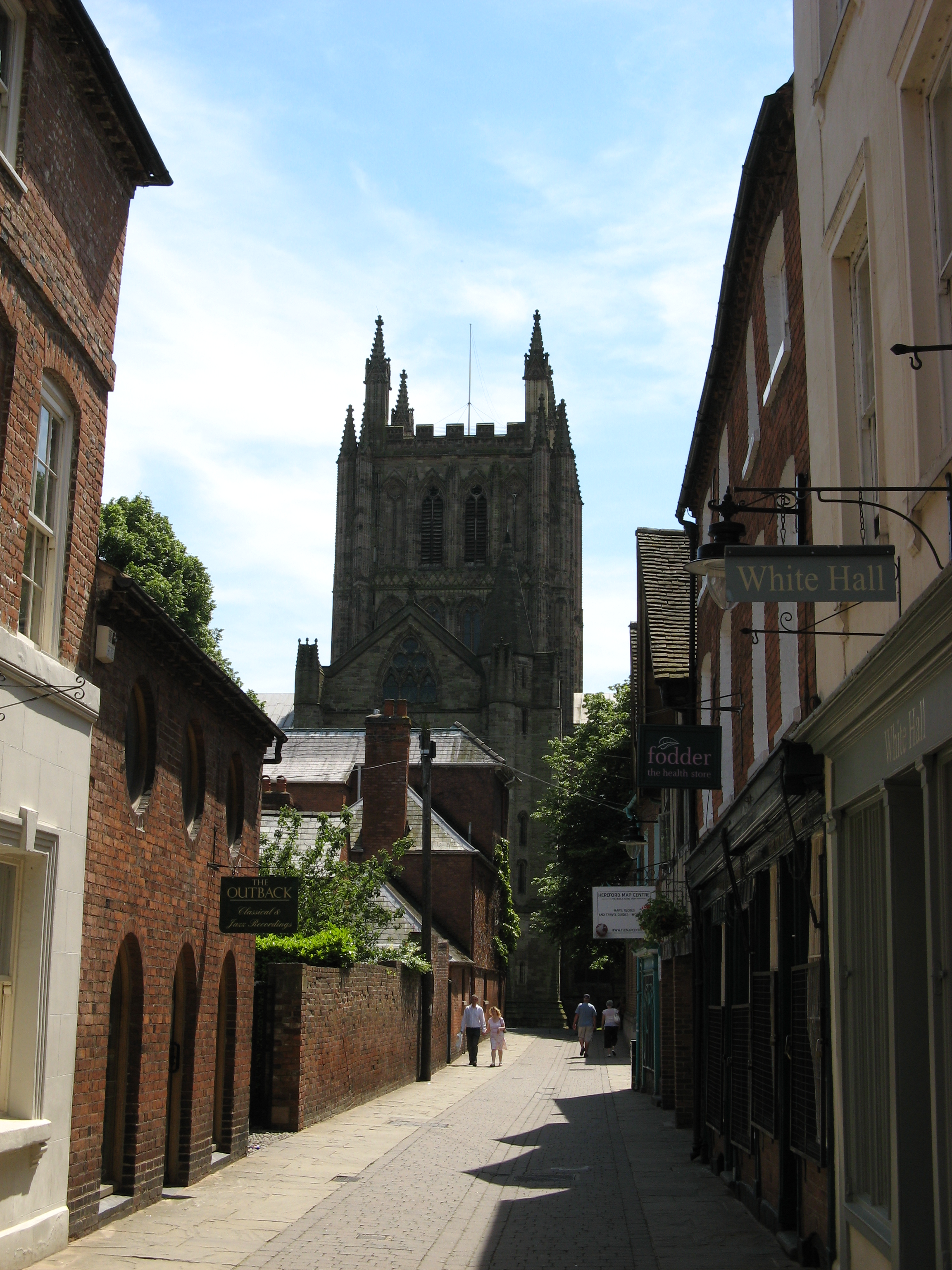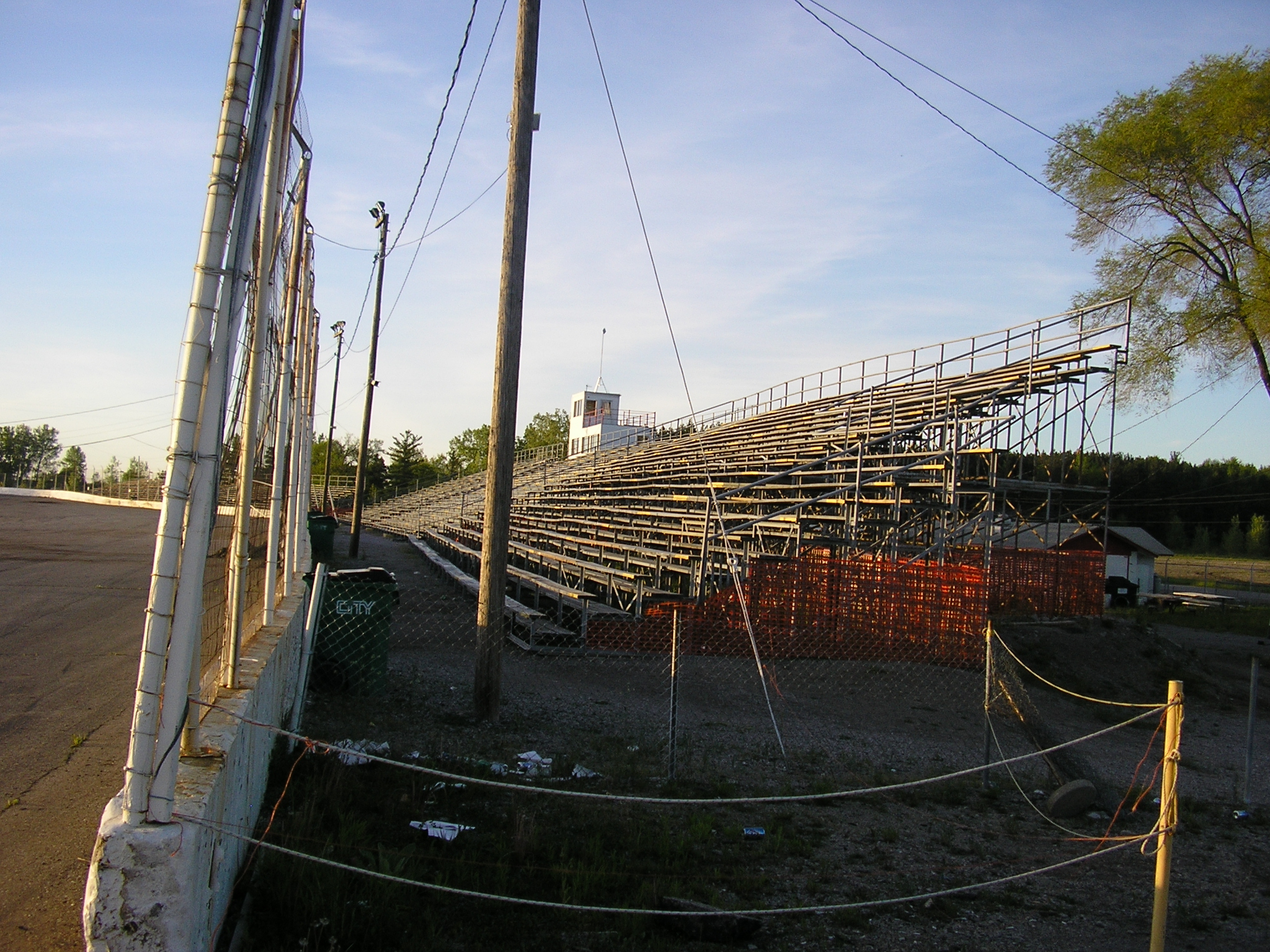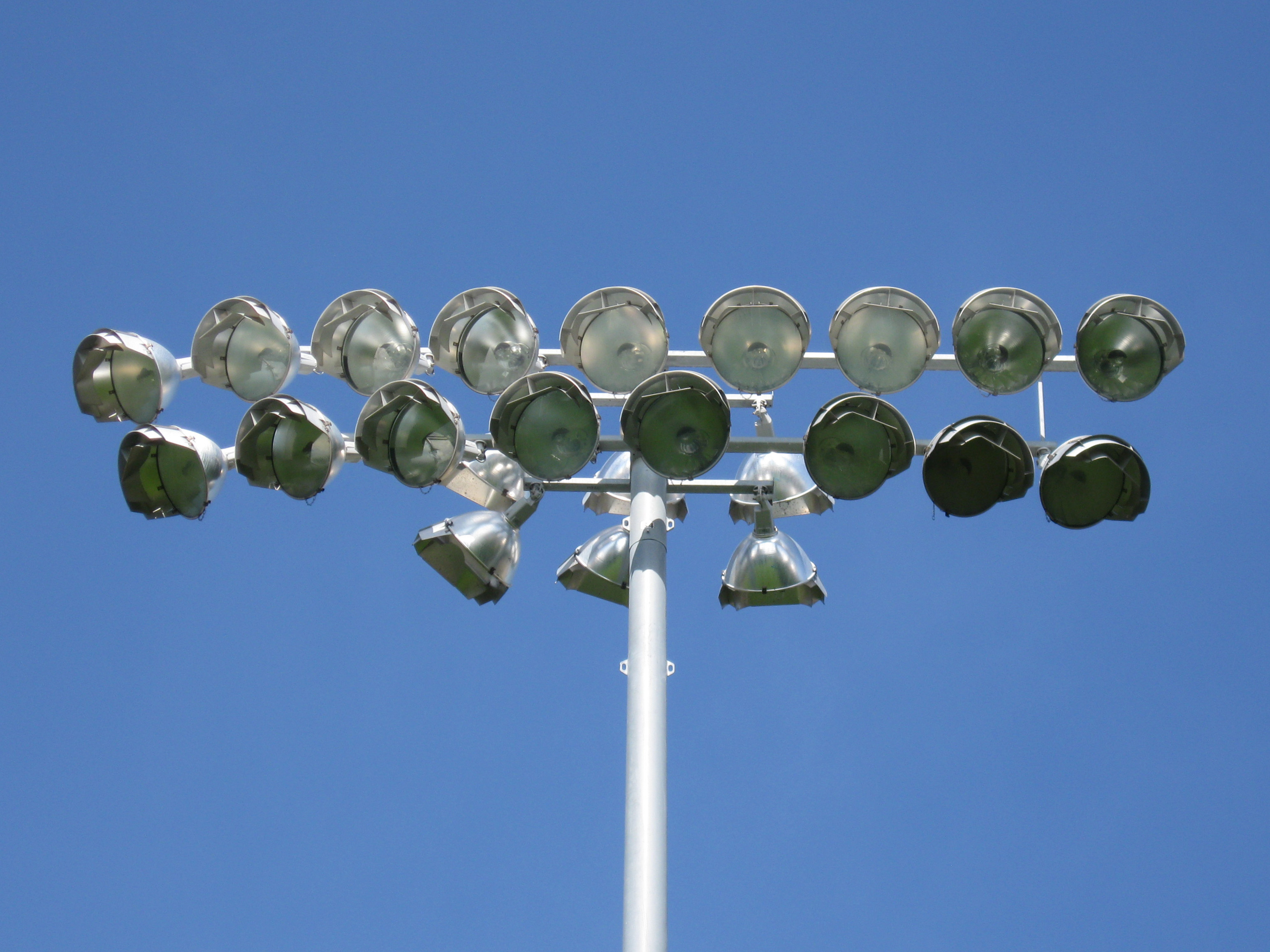|
Alfredian Park
Alfredian Park is a football ground in Wantage, Oxfordshire, England, and the home of Wantage Town Football Club. With a capacity of about 1,500. History The ground was built in 1892, it was named after King Alfred the Great, who was born in Wantage. The ground is on the southern side of Wantage in Manor Road on the A338, around half a mile from the town centre (Market Place). The capacity of the ground is probably 1,500. The record attendance for the ground is 550 for a friendly match against Oxford United. The average attendance at the ground is 75. The ground has a covered stand which occupies half of one side of the western end of the ground with seating for 85. The stand also has room for around 250, plus a few benches. The ground has a concrete path around the entire pitch. The Clubhouse is on the northern end of the ground. Floodlight A floodlight is a broad-beamed, high-intensity artificial light. They are often used to illuminate outdoor playing fields while a ... [...More Info...] [...Related Items...] OR: [Wikipedia] [Google] [Baidu] |
Wantage
Wantage () is a historic market town and civil parish in Oxfordshire, England. Although within the boundaries of the historic county of Berkshire, it has been administered as part of the Vale of White Horse district of Oxfordshire since 1974. The town is on Letcombe Brook, south-west of Abingdon, north-west of Reading, south-west of Oxford and north-west of Newbury. It was the birthplace of King Alfred the Great in 849. History Wantage was a small Roman settlement but the origin of the toponym is somewhat uncertain. It is generally thought to be from an Old English phrase meaning "decreasing river". King Alfred the Great was born at the royal palace there in the 9th century, in what was originally known as Wanating. Wantage appears in the Domesday Book of 1086. Its value was £61 and it was in the king's ownership until Richard I passed it to the Earl of Albemarle in 1190. Weekly trading rights were first granted to the town by Henry III in 1246. Markets are now held ... [...More Info...] [...Related Items...] OR: [Wikipedia] [Google] [Baidu] |
Oxfordshire
Oxfordshire is a ceremonial and non-metropolitan county in the north west of South East England. It is a mainly rural county, with its largest settlement being the city of Oxford. The county is a centre of research and development, primarily due to the work of the University of Oxford and several notable science parks. These include the Harwell Science and Innovation Campus and Milton Park, both situated around the towns of Didcot and Abingdon-on-Thames. It is a landlocked county, bordered by six counties: Berkshire to the south, Buckinghamshire to the east, Wiltshire to the south west, Gloucestershire to the west, Warwickshire to the north west, and Northamptonshire to the north east. Oxfordshire is locally governed by Oxfordshire County Council, together with local councils of its five non-metropolitan districts: City of Oxford, Cherwell, South Oxfordshire, Vale of White Horse, and West Oxfordshire. Present-day Oxfordshire spanning the area south of the Thames was h ... [...More Info...] [...Related Items...] OR: [Wikipedia] [Google] [Baidu] |
England
England is a country that is part of the United Kingdom. It shares land borders with Wales to its west and Scotland to its north. The Irish Sea lies northwest and the Celtic Sea to the southwest. It is separated from continental Europe by the North Sea to the east and the English Channel to the south. The country covers five-eighths of the island of Great Britain, which lies in the North Atlantic, and includes over 100 smaller islands, such as the Isles of Scilly and the Isle of Wight. The area now called England was first inhabited by modern humans during the Upper Paleolithic period, but takes its name from the Angles, a Germanic tribe deriving its name from the Anglia peninsula, who settled during the 5th and 6th centuries. England became a unified state in the 10th century and has had a significant cultural and legal impact on the wider world since the Age of Discovery, which began during the 15th century. The English language, the Anglican Church, and Engli ... [...More Info...] [...Related Items...] OR: [Wikipedia] [Google] [Baidu] |
Wantage Town F
Wantage () is a historic market town and Civil parishes in England, civil parish in Oxfordshire, England. Although within the boundaries of the Historic counties of England, historic county of Berkshire, it has been administered as part of the Vale of White Horse district of Oxfordshire since 1974. The town is on Letcombe Brook, south-west of Abingdon, Oxfordshire, Abingdon, north-west of Reading, Berkshire, Reading, south-west of Oxford and north-west of Newbury, Berkshire, Newbury. It was the birthplace of Alfred the Great, King Alfred the Great in 849. History Wantage was a small Roman Britain, Roman settlement but the origin of the Toponymy, toponym is somewhat uncertain. It is generally thought to be from an Old English phrase meaning "decreasing river". King Alfred the Great was born at the royal palace there in the 9th century, in what was originally known as Wanating. Wantage appears in the Domesday Book of 1086. Its value was £61 and it was in the king's ownersh ... [...More Info...] [...Related Items...] OR: [Wikipedia] [Google] [Baidu] |
Association Football
Association football, more commonly known as football or soccer, is a team sport played between two teams of 11 players who primarily use their feet to propel the ball around a rectangular field called a pitch. The objective of the game is to score more goals than the opposition by moving the ball beyond the goal line into a rectangular framed goal defended by the opposing side. Traditionally, the game has been played over two 45 minute halves, for a total match time of 90 minutes. With an estimated 250 million players active in over 200 countries, it is considered the world's most popular sport. The game of association football is played in accordance with the Laws of the Game, a set of rules that has been in effect since 1863 with the International Football Association Board (IFAB) maintaining them since 1886. The game is played with a football that is in circumference. The two teams compete to get the ball into the other team's goal (between the posts and under t ... [...More Info...] [...Related Items...] OR: [Wikipedia] [Google] [Baidu] |
Hereford F
Hereford () is a cathedral city, civil parish and the county town of Herefordshire, England. It lies on the River Wye, approximately east of the border with Wales, south-west of Worcester and north-west of Gloucester. With a population of 53,112 in 2021 it is by far the largest settlement in Herefordshire. An early town charter from 1189, granted by Richard I of England, describes it as "Hereford in Wales". Hereford has been recognised as a city since time immemorial, with the status being reconfirmed as recently as October 2000. It is now known chiefly as a trading centre for a wider agricultural and rural area. Products from Hereford include cider, beer, leather goods, nickel alloys, poultry, chemicals and sausage rolls, as well as the famous Hereford breed of cattle. Toponymy The Herefordshire edition of Cambridge County Geographies states "a Welsh derivation of Hereford is more probable than a Saxon one" but the name "Hereford" is also said to come from the Anglo-S ... [...More Info...] [...Related Items...] OR: [Wikipedia] [Google] [Baidu] |
Alfred The Great
Alfred the Great (alt. Ælfred 848/849 – 26 October 899) was King of the West Saxons from 871 to 886, and King of the Anglo-Saxons from 886 until his death in 899. He was the youngest son of King Æthelwulf and his first wife Osburh, who both died when Alfred was young. Three of Alfred's brothers, Æthelbald, Æthelberht and Æthelred, reigned in turn before him. Under Alfred's rule, considerable administrative and military reforms were introduced, prompting lasting change in England. After ascending the throne, Alfred spent several years fighting Viking invasions. He won a decisive victory in the Battle of Edington in 878 and made an agreement with the Vikings, dividing England between Anglo-Saxon territory and the Viking-ruled Danelaw, composed of northern England, the north-east Midlands and East Anglia. Alfred also oversaw the conversion of Viking leader Guthrum to Christianity. He defended his kingdom against the Viking attempt at conquest, becoming the dominant ruler ... [...More Info...] [...Related Items...] OR: [Wikipedia] [Google] [Baidu] |
Exhibition Game
An exhibition game (also known as a friendly, a scrimmage, a demonstration, a preseason game, a warmup match, or a preparation match, depending at least in part on the sport) is a sporting event whose prize money and impact on the player's or the team's rankings is either zero or otherwise greatly reduced. In team sports, matches of this type are often used to help coaches and managers select and condition players for the competitive matches of a league season or tournament. If the players usually play in different teams in other leagues, exhibition games offer an opportunity for the players to learn to work with each other. The games can be held between separate teams or between parts of the same team. An exhibition game may also be used to settle a challenge, to provide professional entertainment, to promote the sport, to commemorate an anniversary or a famous player, or to raise money for charities. Several sports leagues hold all-star games to showcase their best players ... [...More Info...] [...Related Items...] OR: [Wikipedia] [Google] [Baidu] |
Oxford United F
Oxford () is a city in England. It is the county town and only city of Oxfordshire. In 2020, its population was estimated at 151,584. It is north-west of London, south-east of Birmingham and north-east of Bristol. The city is home to the University of Oxford, the oldest university in the English-speaking world; it has buildings in every style of English architecture since late Anglo-Saxon. Oxford's industries include motor manufacturing, education, publishing, information technology and science. History The history of Oxford in England dates back to its original settlement in the Saxon period. Originally of strategic significance due to its controlling location on the upper reaches of the River Thames at its junction with the River Cherwell, the town grew in national importance during the early Norman period, and in the late 12th century became home to the fledgling University of Oxford. The city was besieged during The Anarchy in 1142. The university rose to dominate ... [...More Info...] [...Related Items...] OR: [Wikipedia] [Google] [Baidu] |
Bleacher
Bleachers (North American English), or stands, are raised, tiered rows of benches found at sports fields and other spectator events. Stairways provide access to the horizontal rows of seats, often with every other step gaining access to a row of benches. Benches range from simple planks to elaborate ones with backrests. Many bleachers are open to the ground below so that there are only the planks to sit and walk on. Some bleachers have vertical panels beneath the benches, either partially or completely blocking the way to the ground. Name origins The open seating area in baseball was called the "bleaching boards" as early as 1877. The term "bleachers" used in the sense of benches for spectators can be traced back to at least 1889; named as such because the generally uncovered wooden boards were "bleached by the sun". ''The Dickson Baseball Dictionary'' lists as a ''secondary'' definition the fans sitting in them. By the early 1900s, the term "bleachers" was being used for ... [...More Info...] [...Related Items...] OR: [Wikipedia] [Google] [Baidu] |
Floodlight
A floodlight is a broad-beamed, high-intensity artificial light. They are often used to illuminate outdoor playing fields while an outdoor sports event is being held during low-light conditions. More focused kinds are often used as a stage lighting instrument in live performances such as concerts and plays. In the top tiers of many professional sports, it is a requirement for stadiums to have floodlights to allow games to be scheduled outside daylight hours. Evening or night matches may suit spectators who have work or other commitments earlier in the day, and enable television broadcasts during lucrative primetime hours. Some sports grounds which do not have permanent floodlights installed may make use of portable temporary ones instead. Many larger floodlights (see bottom picture) will have gantries for bulb changing and maintenance. These will usually be able to accommodate one or two maintenance workers. Types The most common type of floodlight is the metal-halid ... [...More Info...] [...Related Items...] OR: [Wikipedia] [Google] [Baidu] |


_Offices%2C_Portway%2C_Wantage%2C_Oxon.jpg)






